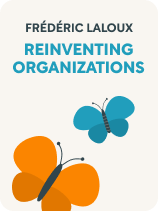

This article is an excerpt from the Shortform book guide to "Reinventing Organizations" by Frédéric Laloux. Shortform has the world's best summaries and analyses of books you should be reading.
Like this article? Sign up for a free trial here.
How much control from above do workers need? Which is more effective for performance—regulations or trust?
Frédéric Laloux surveyed successful companies that embody the mindset he believes will epitomize the next stage of human evolution. He identified a common thread of practices and philosophies. These include new assumptions about how people work—and how they’re motivated to work.
Read more to learn Laloux’s findings on autonomy in the workplace.
Autonomy in the Workplace
Underlying the way that visionary organizations (what Laloux calls “Teal organizations”) operate is a change in our basic attitude toward autonomy in the workplace. Ever since the days of autocratic monarchs, leaders have assumed that people need the heavy hand of authoritarian rule in order to behave and get anything done. Visionary systems reject this idea in favor of the less cynical view that people are generally reasonable and can be trusted to make good decisions. (Shortform note: This sentiment is backed up by historian Rutger Bregman, who writes in Humankind that our species evolved to be compassionate and cooperative and that the darker side of human nature flourished because of the structures imposed by civilization.)
Laloux argues that, when trust replaces regulations and mandates, it unleashes workers’ inner potential. When we’re set free with the trust that we’ll work toward a purpose, Laloux finds that we’re revealed to be creative, intelligent, and willing to hold ourselves accountable for our own mistakes. Visionary companies assume that, when mistakes occur, people will own and learn from them in a way that benefits the whole organization. (Shortform note: In Start With Why, Simon Sinek elaborates on the benefits of trust, such as allowing workers to take creative risks and invest more fully in the company’s goals. Sinek also notes that by tapping into the brain’s limbic system, trust gives valuable emotional weight to decisions made by others.)
Furthermore, says Laloux, peer pressure is a far better regulator than punitive action from a battery of bosses. As we assume responsibility for the organization’s goals, we stop merely working for money. We work for the quality of the work itself. (Shortform note: The idea that peer pressure can be a positive force may be counterintuitive, but has been gaining attention among those who study adolescent behavior. Peer pressure can help teens make positive choices, adopt healthy habits, and share moral support. The same has been shown to be true of professional colleagues who treat each other as coaches and collaborators.)

———End of Preview———
Like what you just read? Read the rest of the world's best book summary and analysis of Frédéric Laloux's "Reinventing Organizations" at Shortform.
Here's what you'll find in our full Reinventing Organizations summary:
- The practices and values that are inherent in the next level of human organization
- A look at the paradigm shifts in organizational structure over the past 10,000 years
- How to implement visionary practices at your company






